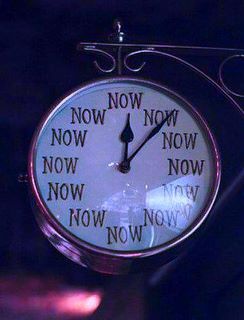The first thing that comes to mind for most people when talking about energy levels is probably measured in terms of the ability to do physical activities. Generally speaking chronic fatigue is often gauged by the inability to do physical activities by those experiencing the disease, carers and other sympathetic people.
Ironically, chronic fatigue in my view is not all about fatigue. If we empower fatigue to a hostage keeper status it will potentially sabotage improving overall health. Conversely, if we think solely of beating fatigue; those with chronic fatigue will likely just beat themselves up, over and over again.
It is widely understood amongst interested professionals and non-professionals that the human body needs physical activity to be able to produce physical energy; assuming that the body has natural energy reserves. An overall healthy human body has energy reserves unlike an unhealthy chronic fatigued body is arguably depleted of its reserves.
Likening the implications of ‘depleted reserves’ as trying to run a car on petrol fumes for at least six months; gives us some insight to the detrimental effect this could have on overall performance and over time the knock on effect damage this might cause to a human body.
Most car owners would investigate the first sign of ‘car fatigue’ and painstakingly nurture it back to peak performance. However, the worst case scenario is buying another car or use alternative modes of transport. We only have one body and we can’t trade it in; we owe it to ourselves to look after it if we want to experience a good quality of life.
Physical activity is not the only form of activity potentially feeding or draining our energy reserves; mental, emotional and spiritual activities all play a part in the depleting, replenishing, building and the potential maintaining of those reserves.
Experience has taught me that balancing energy usage is the overarching canopy that helps protect the potential effectiveness of other health improving choices and healthier lifestyle changes. Remember that it is energy usage on all levels; physical, mental, emotional and spiritual. Being consciously aware of the types of energy you use and the effect it has on you on a daily basis will empower you to make the right choices for you in relation to where you are now.
Whether you respond or react to life experiences can be beneficial or detrimental to recovery; don’t beat your self up about what you cannot do, enjoy and appreciate what you are able to right now. The choices you make in terms of what you do and what you don’t do on every level will influence your recovery path. Listen to your body and respond kindly; living in the now is important and learning to go ‘with your flow’ will help to improve the quality of your life.
Within this context saying, “No, I won’t do that today”, is not weak or a defeatist attitude. It is a sign of strength and commitment to looking after yourself and an indication regarding your determination to improve your overall health in the long term.
Image; Creator Unknown.
Copyright Cassandra Jade Foxley 30 October 2013


I thoroughly agree Cass, for me it has always been about balance. I have to wrestle with my own natural tendency to be a “do-er” though. Now I am trying to just “be” where possible and have started mindfulness to help me get the right balance between being and doing and enjoying the little things. Thanks for writing this.
It’s good to know that you resonate with this post Liz. I think that human beings are taught from a very early age to believe that we should be ‘doing’; how we interpret our bodies are designed ‘to do’ is important. Here’s the thing, when we are asleep during the night our bodies are doing; they are detoxifying cleansing and attempting to repair any potential damage to restore natural energy and vigour.
When a human body is chronically fatigued good quality nourishing sleep becomes at best extremely difficult and more often at worst impossible. The body systems understandably become increasingly imbalanced including, as you know, compromising the lymphatic system process which is designed to detoxify and cleanse the human body on a cellular level. This has a knock on effect compromising the potential repair and the restoring of natural energy and vigour.
It sounds like you are making very good progress Liz you must feel really encouraged by your personal efforts!